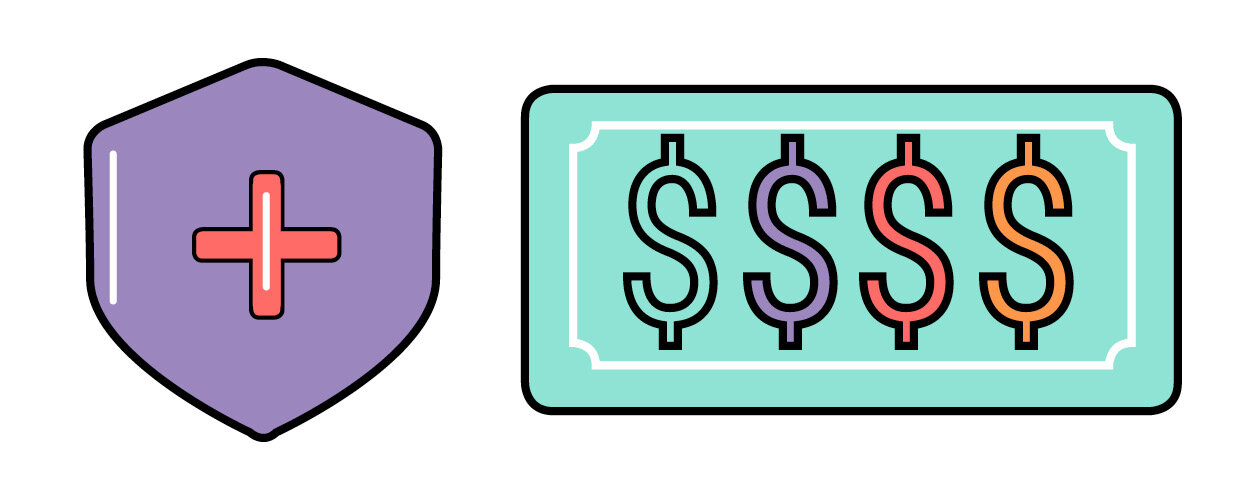In the U.S. most people get insurance through their employers, but what happens if you don’t? Finding the best insurance plan is hard even when your company provides it, let alone when you are searching for it on your own. We’ve put together some resources on how to find an insurance plan that is right for you without an employer sponsored plan.
There are three key considerations when looking for health insurance outside of an employer.
Know where to look for health insurance options
Determine which plan is right for you based on the premiums and plan benefits structure
We’ve covered #2 and #3 in previous posts, so this post is dedicated to helping you determine where to look for health insurance options if it is not available through an employer.
1. The Health Insurance Marketplace aka Healthcare.gov aka Obamacare
The Health Insurance Marketplace is a great place to get started in your hunt for health insurance. This government run website shows you the ACA compliant plans in your state along with any subsidies that you qualify for based on your income. Simply follow the prompts to see which plans are available to you. Once you have seen the list of what is available to you, you may want to compare those options with options from a local insurance agent or broker (see #3).
Note: You’ll want to understand the basics of health insurance, including the differences between a PPO plan with a low-deductible and a high deductible health plan, as many of the plans offered on the Marketplace have high deductibles. Get started here.
2. Medicaid
Medicaid is a free health insurance option that covers low-income individuals and families. Eligibility depends on a variety of criteria and varies by state. The good news is that there are a TON of resources to help determine if you are eligible. If you think for even a second that you might be eligible for Medicaid or CHIP, you should do one of the following:
Apply through the Health Insurance Marketplace. Follow this link.
The Marketplace automatically screens applicants if you meet some baseline criteria. Once you’ve submitted a completed application, it will be sent to your state’s Medicaid office for review. We found out that in North Carolina, the case managers will process the case in less than 45 days.
Apply through your state’s Medicaid agency. Find your state’s contact information here, and apply in person or online.
Learn more about Medicaid here.
3. Through a Private Insurance Agent or Broker
You can purchase a private health insurance plan through a licensed agent (works for a single health insurance company) or a broker (works with several companies).
Healthcare.gov’s local help search can help you find a list of agents, brokers, or assisters in your area.
To give some personal insight into private insurance brokerage, we reached out to Chris Acker, CLU, ChFC at CB Acker Associates for his input. Check out our Q&A with him below!
How do you identify a trustworthy insurance broker?
Chris Acker, CLU ChFC: “Word of mouth is a key component to finding a good insurance broker, or any service provider for that matter. I would also check with state licensing boards if you’re dealing with an online broker you’ve never met or spoken with in person. Credentials and industry involvement can serve as a ‘tie-breaker’ between two brokers you are considering.”
What are good questions to ask your insurance agent before choosing a healthcare plan?
Chris Acker, CLU ChFC: “I think that the most important question to ask is ‘what plan networks contain most or all of my current healthcare providers?’ It’s vital that consumers fully utilize in-network benefits. A good broker who is familiar with the local market will know which carriers and health systems are in contract negotiations, for example, and can help guide their clients to stable, high-quality carriers.”
Why should you use an insurance broker rather than healthcare.gov?
Chris Acker, CLU ChFC: “Independent brokers who are certified for national and state market exchanges can provide more individual guidance than can ‘enrollers’ who are only certified to answer questions pertaining to the exchange. Enrollers cannot provide “advice” as can state licensed insurance brokers. An insurance broker can ask broader questions on one’s financial picture, for example, to assess a good fit for a specific plan design.”
Do insurance agents specialize?
Chris Acker, CLU ChFC: “Yes, many agents specialize in either group or individual plan options.”
Do they only promote plans for some insurance companies?
Chris Acker, CLU ChFC: “I believe, and this is true in my case in Northern California, that most brokers tend to work and sell plans which have broad market share and good reputations. In Silicon Valley we only have three major health systems-Kaiser, Sutter, and Stanford which do not contract with many carriers for individual plans. This limits a broker’s carrier stable to 3-4 companies.”
How much do you have to pay a broker? How do brokers make money?
Chris Acker, CLU ChFC: “Brokers are paid a small commission equal to roughly 1% of monthly premium. Brokers are paid by the health plan, not the consumer.”
Are there any types of plans you do not recommend?
Chris Acker, CLU ChFC: “I do not recommend, and it it illegal to recommend, any ‘limited benefit’ plans in California.”
Meet Chris!
Chris Acker began his insurance career in 1985. In 1998, he opened his own office where he continues to specialize in helping individuals, families, and businesses with a wide variety of insurance issues, completely independent from any obligation to any specific insurance company. He earned the professional designations, CLU, and ChFC in 1988 and 1991, respectively and continues his education on an ongoing basis. He currently lives in Palo Alto with his wife, Carol, his two daughters, Rachael, and Samantha, and their dog Mowgli.


